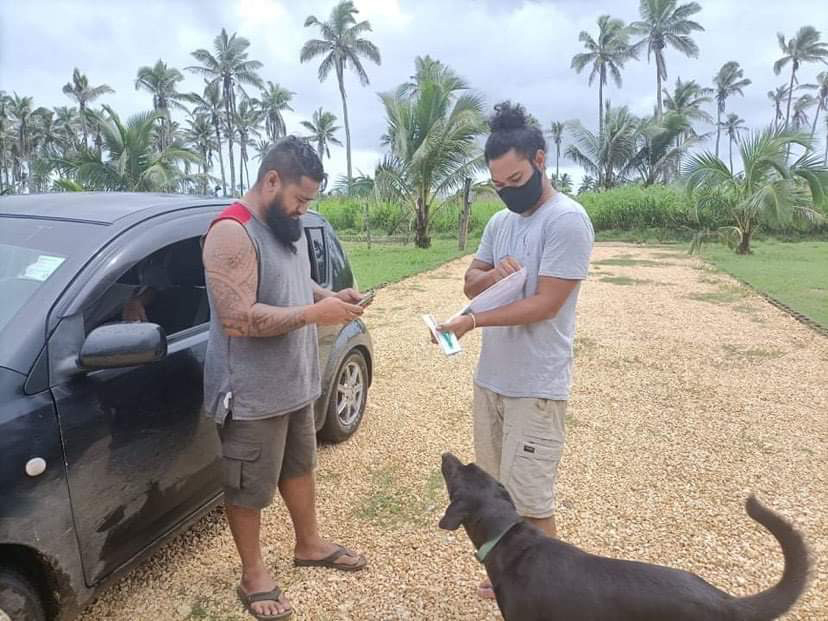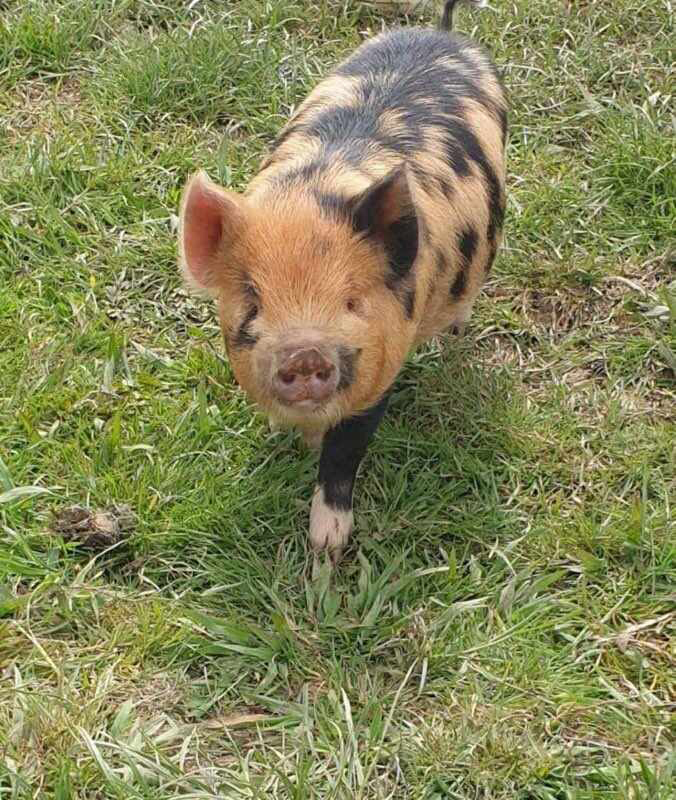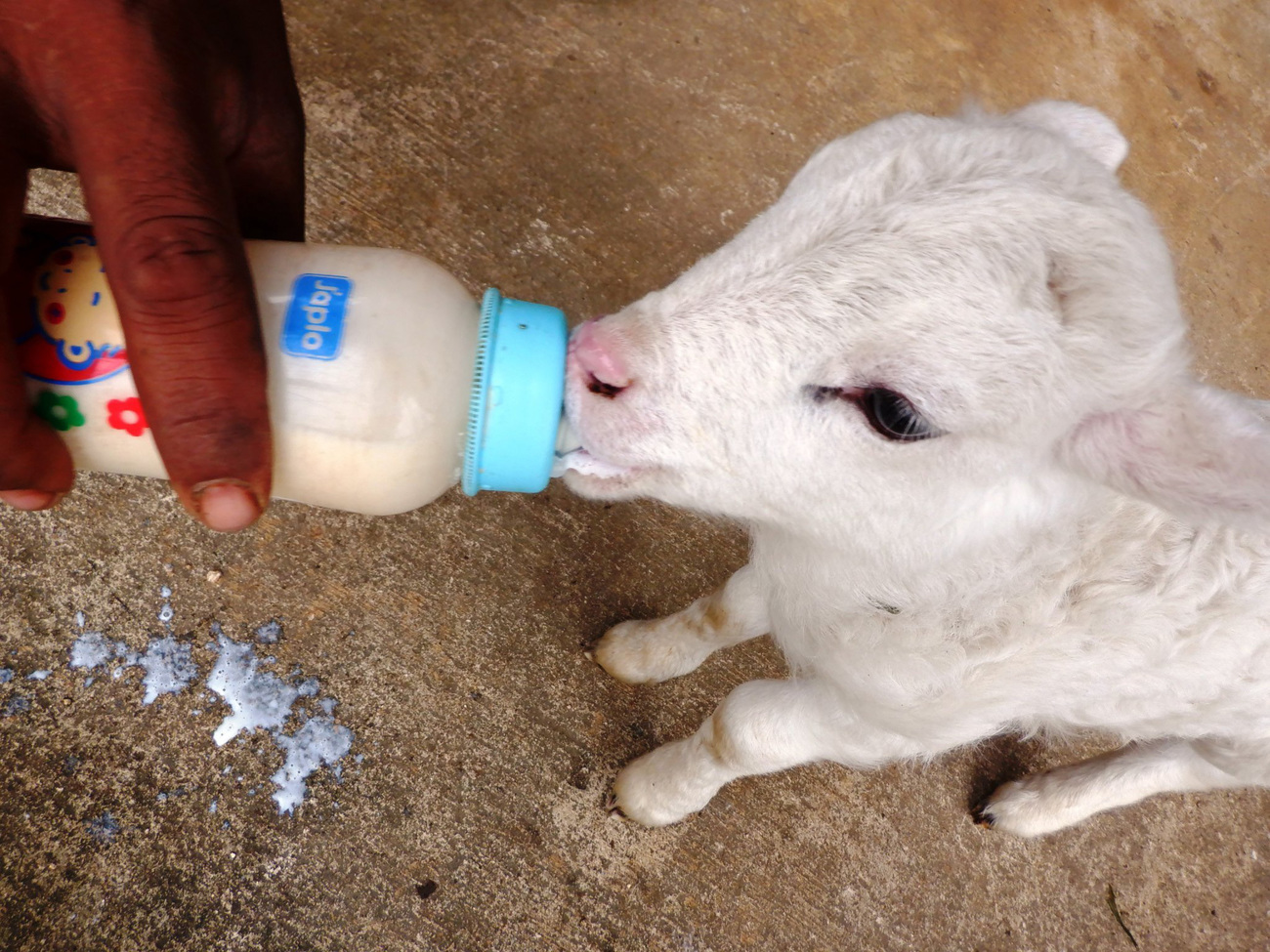Rescuing animals during disasters - Southeast Asia
When people are prepared, animals are protectedaid to Tonga in the wake of 2022 tsunami
aid to Tonga in the wake of 2022 tsunami

On Saturday, 15 January 2022, an undersea volcano erupted near the Pacific nation of Tonga and immediately triggered warnings of 1.2-metre tsunami waves. Evacuation orders went out for those on the shores of the Kingdom of Tonga, as well as several South Pacific islands. The tsunami waves caused damage to boats as far away as New Zealand and Santa Cruz, California.
The tsunami and volcanic ashfall damaged the infrastructure of residences, roads, marine ports, energy and water supply, and the undersea cables (phone and internet) that connect the island to the rest of the world. Islands like Atatā were almost entirely destroyed and the devastation left people, pets and farm animals extremely vulnerable.

Assessing the impact across Tonga was particularly challenging due to the remote location of many communities and sporadic communications connectivity. COVID-19 presented an added risk with the islands having gone into lockdown in early February, further hindering the distribution of supplies.
IFAW soon received word from our friends at South Pacific Animal Welfare (SPAW), a New Zealand charity that provides veterinary services throughout the South Pacific, that there was widespread tsunami damage. One clinic location was even displaced 50 miles inland from its location.
IFAW provided SPAW with emergency funding to support critical veterinary supplies for Tonga’s animal community. This was a coordinated effort with the Tongan government to distribute three months of essential veterinary aid to Tongatapu and the outer islands.
Transporting supplies to the outer islands was a challenge as the local ferry service didn’t start running until May 2022. There are still no flights and communications/internet connectivity is inconsistent. Officers from the Ministry of Agriculture, Food and Forests (MAFFF) and local volunteers were vital in ensuring that veterinary supplies were delivered where they were needed most.

Lead Veterinarian Geoff Neal managed the project on the ground. He estimates that IFAW’s grant has thus far helped between 3,000–4,000 animals, including dogs, cats, cattle, chickens and more.
One community was able to help an orphaned lamb with feed from the IFAW grant. They were thrilled to help an orphan in a way they have not been able to do in the past—a true source of pride for the local community.
We are grateful that our coordinated efforts and teamwork have helped those with the greatest need. Natural disasters bring an extensive set of challenges wherever in the world they occur. We were able to help many animals thanks to collaboration with the Tongan government, government agencies, other NGOs and the local communities themselves.
Core to IFAW’s global disaster response work are also our disaster preparedness and risk reduction efforts to ensure communities and animals are ready when disasters strike. Disasters continue to increase in frequency and with greater intensity, leaving catastrophic damage in their wake. Preparedness is a critical step in protecting our loved ones and setting our communities up to launch recovery efforts as immediately as possible after a disaster event.
Related content
Our work can’t get done without you. Please give what you can to help animals thrive.